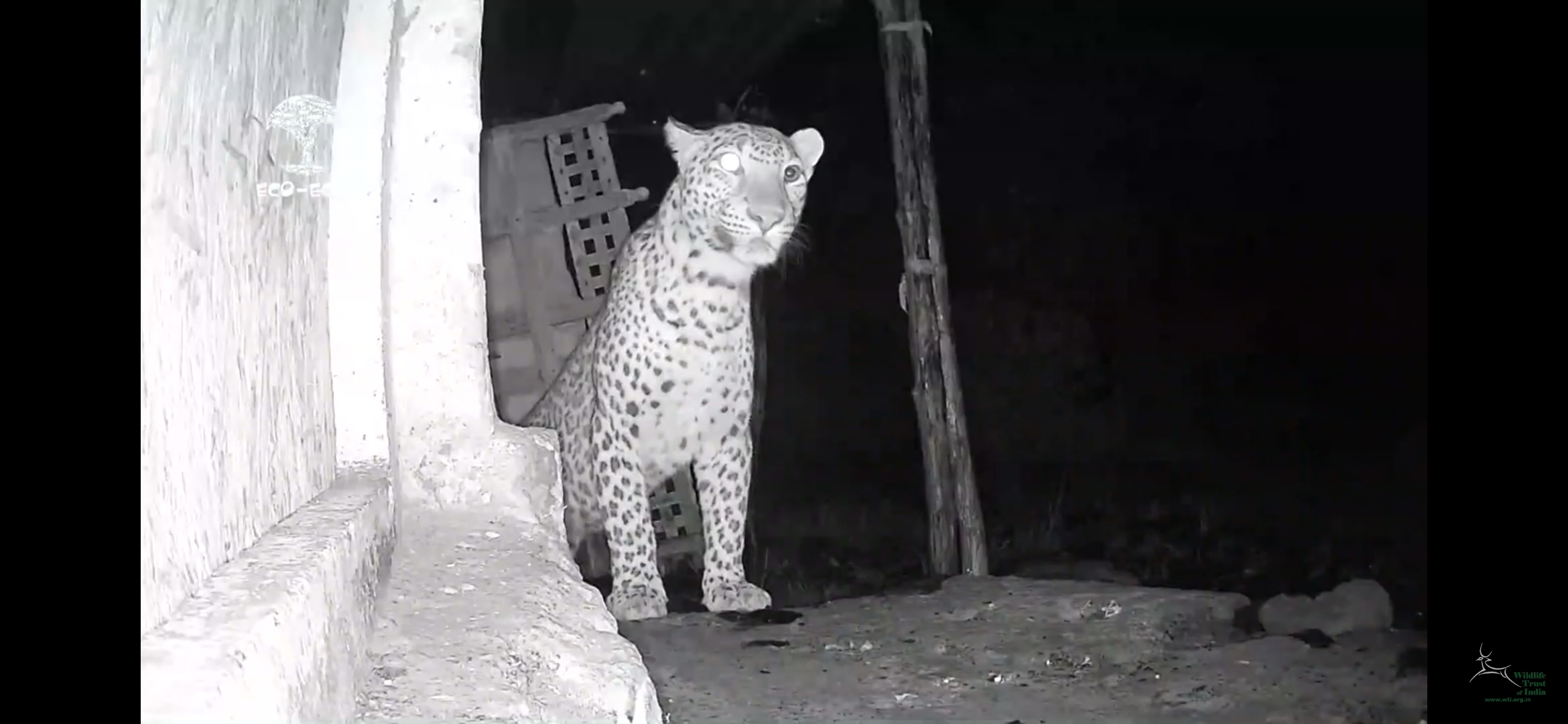Igatpuri, Nashik, 4 Sept, 2020
While the rest of India was celebrating Independence Day, a farmer in a village 40 kms away from Nashik set out for his usual days’ work. The rain had been particularly fierce for the past few weeks as he set forth to walk towards his storage shed at the corner of his vast farmland hemmed by mountains on two sides, a shed where he stored his tools and some dry wood. As he entered the shed, he noticed a litter of four tiny leopard cubs snuggled into a ball. He noticed that their eyes were still closed and as he stood there he realized that he could be in real danger if the mother leopard was around. He left the shed immediately and informed the state forest department (Nashik West Forest Division) about the cubs.
The forest department called WTI’s Rapid Action Project Partner, the Eco Echo Foundation, a non-profit Organisation that comprises an enthusiastic and dedicated group of experienced young wildlife rescuers and volunteers to assess the situation. Their main goal was to ensure that the leopard and her cubs can pass safely without causing harm to any of the villagers. The villagers had encountered a leopard only once before, all of a sudden there was a family of five at such close proximity.
The forest guards and the Eco Echo team briefed the entire village on safety measures to be taken for the next few days, or perhaps the next few weeks. They explained to them the role of a top-predator like a leopard in an ecosystem — how in the long-run the ecosystem will be balanced and their crops will be healthy. They even set up a fake trap near-by to pacify the villagers. Their aim, however, was to let the leopard and her cubs return safely to the wilderness. The area around the shed was cordoned-off to ensure that the family remained undisturbed.

The next day, the forest department staff and professionals from the Eco Echo team cautiously approached the shed when the mother was away. They carefully set up cameras to document this event ensuring the cubs remained undisturbed. The cubs had just opened their eyes and they predicted that the torrential rains would have driven the leopard to this covered shed to give birth to this litter. With the cameras set up, now they could keep a careful watch on the movements of the leopard. New-born leopards are extremely vulnerable and rely entirely on their mother for food and safety. Sometimes they are also abandoned by their mother if she feels the area is unsafe. The team had to ensure that the hut was secure and the leopard family were absolutely safe.
Upon assessing the camera footage, they saw that the leopard would leave to hunt for food at around 6-7am every day and would return just before the light vanished behind the mountains. The leopard had even hunted 10 chickens that belonged to the farmer, who in his magnanimity, after the team explained the ecological dynamics gracefully accepted this loss of his livestock. The Eco Echo team would go every day in the afternoon when the mother was away to replace the camera batteries and retrieve the data. They saw intimate moments of her playing and nursing her cubs. Leopards are incredibly intelligent and she must have known from the scents that they were being watched. Yet, she stayed to nurse her cubs for 7 days nestled inside the shelter of the shed before deciding to move on. With the increase in feral dog movement around the shed, on 22nd August the leopard decided to move her cubs to a safer spot.she picked up one of her cubs in her mouth and went to an open spot outside the farmland. She stayed for a while to ensure the spot was safe before coming back to take each cub with her one by one.
The mission was successful. The leopard family moved deeper into the hills where the mother will now teach her cubs to play, hunt and survive. The villagers had an experience of a lifetime, a collective effort to co-exist and accommodate their visitors. Livestock loss was compensated for by Eco Echo Foundation to the farmer and gave him a frame picture in memory of the leopard family in his shed. The villagers recounted that since the Mumbai-Nashik flyover has been built, the number of human-animal encounters have rapidly increased. With every encounter with the wild, we can choose to co-exist with our acts of compassion and trust or we can choose an act of violence born out of fear and ignorance. The people of this village chose the former with a little help from the local volunteers at Eco Echo Foundation. As for the villager who gave the leopard and her cubs his chickens, he said he was happy he fed a family of five.
One of Wildlife trust of India’s oldest initiatives — the Rapid Action Project supports committed grassroots organisations like Eco Echo Foundation to ensure that human-animal conflict is minimised and promote conservation education and action amongst the communities.
Tanaya Nair, the author of this article, is a student beginning her career in wildlife research and is currently engaged with the Communications Division at WTI. She is most herself when she is looking for birds in a forest, hovering over a coral reef or painting them on large canvases.